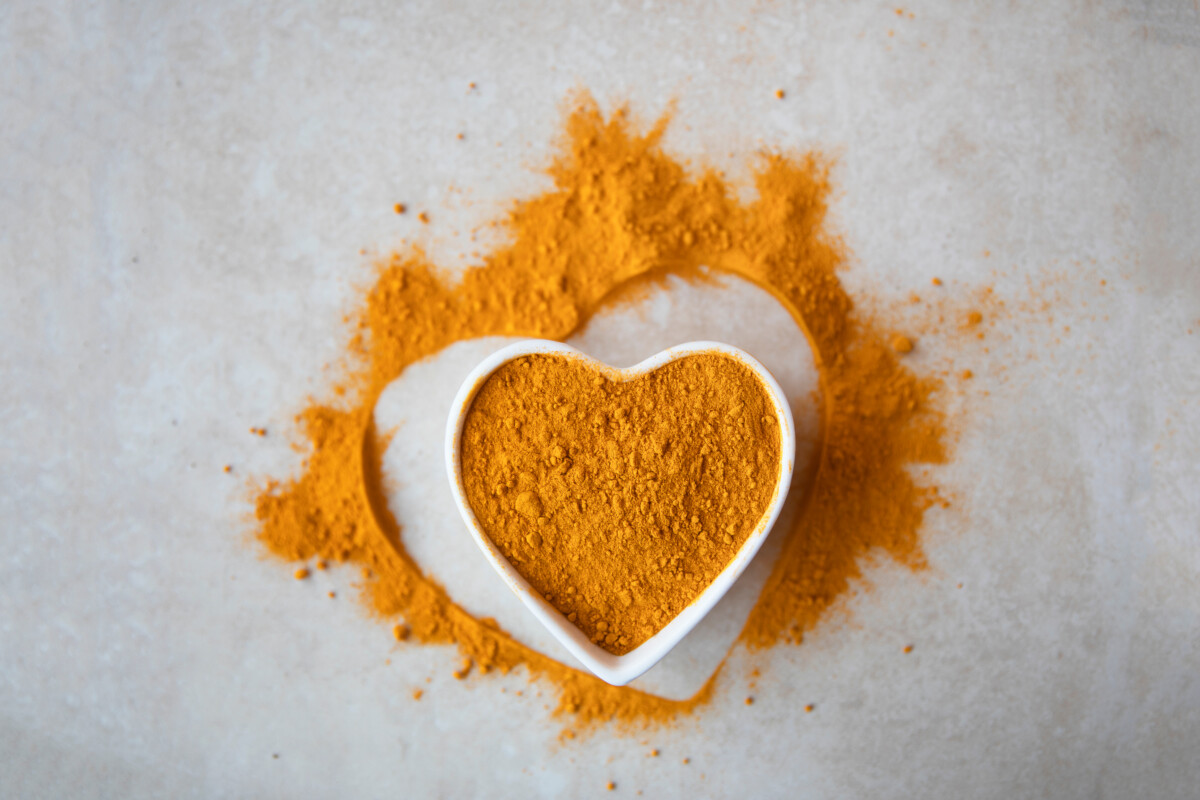Turmeric – Food Fad or Valuable Supplement?

Look in any store and you will probably find something turmeric: turmeric cocoa powder, turmeric latte mixes and even the oddly tasty turmeric oatmeal. If you’re not a fan of curry, you may be wondering what turmeric is and why it’s so popular.
Turmeric is a bright, yellow spice that comes from the root of the Curcuma longa plant, a tropical relative of ginger. In cooking, turmeric can be freshly chopped or used in a dried and powdered form. In medicine, turmeric is an ancient remedy that has been used for thousands of years in aryuvedic medicine, the traditional medicine of India. More recently, turmeric and its active ingredient, curcumin, have been packaged and sold as concentrated food supplements.
People take food supplements in hopes of receiving health benefits. Since food supplements are largely unregulated, it’s important to look at what research reveals about a supplement before deciding to take it. With something as popular as turmeric, research is not hard to find.
Curcumin as an anti-inflammatory
After an injury, inflammation can be a sign that the body is concentrating its healing power, which is a good thing. When inflammation is ongoing and widespread, however, it can play a role in serious, chronic illnesses. Curcumin in high doses has been shown to have anti-inflammatory properties that help counter low-level, chronic inflammation.
Inflammation is also one of the painful side effects of arthritis. Not surprisingly, curcumin has been shown to help with arthritis pain.
Curcumin as an anti-oxidant
The body contains molecules known as free radicals. When levels of free radicals are too high, they can cause damage to the cells. This damage is thought to contribute to the development of cancer. Curcumin is an antioxidant, which means that is combats free radicals. In addition, it may also stimulate the activity of other free radicals.
Curcumin and the Brain
There is a hormone in the brain, BDNF, that helps promote the growth of new brain cells or neurons. Both depression and Alzheimer’s have been linked to low levels of this hormone. Curcumin has been shown to help increase levels of BDNF in the brain, which may help with both depression and dementia.
Curcumin and the Heart
The health of the heart is linked to the health of the lining of the blood vessels, which help regulate blood pressure. Curcumin has been shown to help support the health of the blood vessel lining.
Making Curcumin Available to the Body
Eating turmeric isn’t all it takes to get enough curcumin into your body to make a difference. Curcumin is only 3% by weight of turmeric, and even that 3% is not absorbed well by the body. When looking for a curcumin or turmeric supplement, be sure to look for a supplement that contains black pepper. Black pepper contains a substance known as peperine which greatly increases the amount of curcumin the body can absorb and use.
Side Effects of Curcumin
Curcumin has the following side effects:
- It can cause an upset stomach.
- It is a blood thinner.
- It can cause contractions.
Because of these side effects, pregnant women and people on blood thinners should not take curcumin supplements.
How Much to Take
According to the American Arthritis Foundation, the suggested amount of curcumin is 500mg twice daily. It is better to take curcumin than turmeric because turmeric is often contaminated with lead. Supplement and Herb Guide for Arthritis Symptoms | Arthritis Foundation
Consult your Healthcare Provider
Natural remedies are no substitution for medical expertise and treatments. Before starting on a new supplement, consult with your provider to make sure that there will be no conflicts with your medications or medical conditions.
